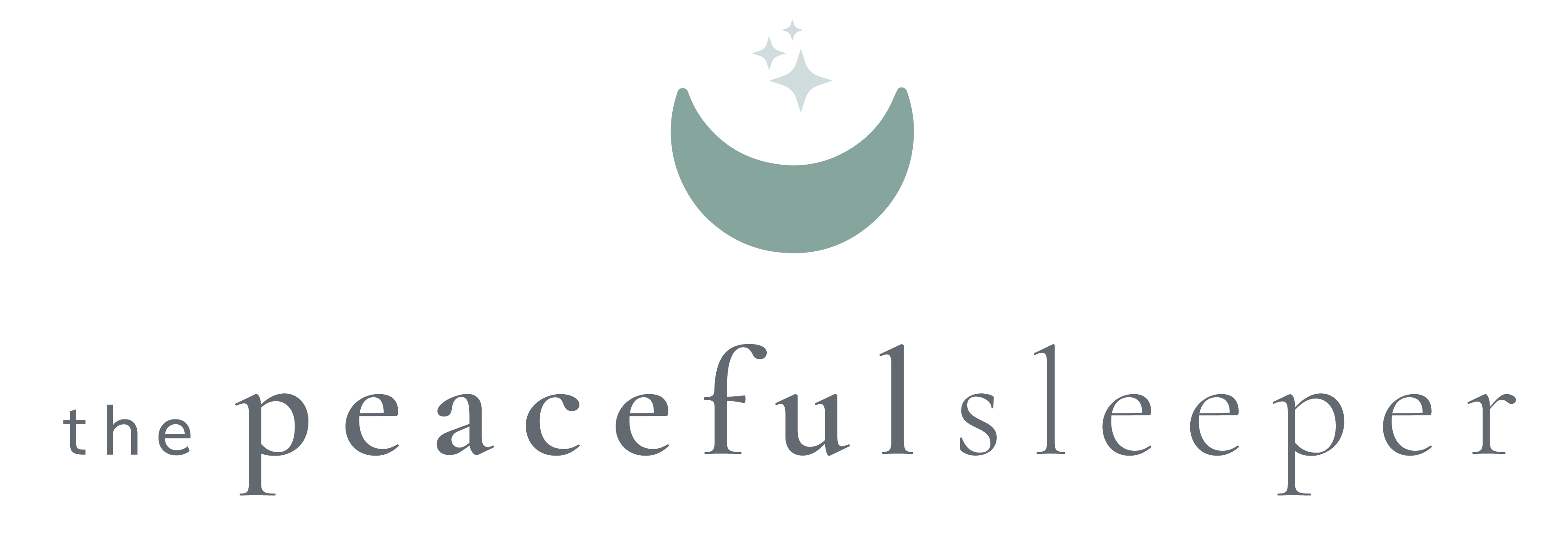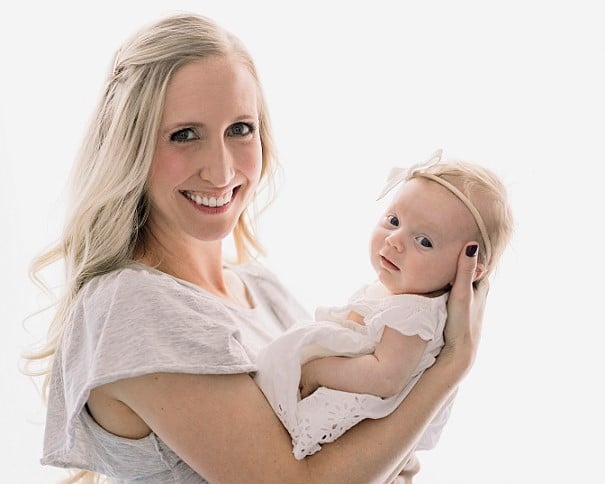Do you suspect that your little one is going through a sleep regression at 14 months old? A sleep regression can look like suddenly fighting or refusing naps, fighting bedtime, more night wakings, and/or early morning wakings.
When sleep suddenly falls apart, there can be several reasons. It is usually because of one (or more) of these 3 reasons:
- Teething
- Illness
- Sleep Regression
But how do you tell the difference, and more importantly, how do you get sleep back on track?! And as a note, this article focuses on 14 months, but it still generally applies to 15 month olds!
Look no further, I’ve got the answers to all your questions! In this blog post, I’m going to go over:
Is there an official “14 month sleep regression?”
Is it a sleep regression, teething, or illness?
How do I get my 14 month old’s sleep back on track?
Is there an official “14 month sleep regression”?

First of all, there are “common” times that sleep regressions happen throughout infancy and toddlerhood. These times are:
You will notice that “14 months” did not make the list. Sadly, though, that doesn’t mean your little one cannot be going through a sleep regression at 14 months. It just means that 14 months is not a “common time”.
Little ones go through sleep regressions for many different reasons. The main ones are:
- Developmental leap (they are learning a new skill like sitting, walking, talking, etc.)
- Going through a bout of separation anxiety
- Big change in their life (like moving or starting daycare)
- Travel or returning from travel (adjusting to a new sleep environment/routine)
- Getting over an illness (if they were receiving more support or intervention to sleep while sick)
So all this to say, although there are common times for sleep regressions, they can happen at any time. However, this doesn’t mean all is lost. Sleep will bounce back, and there is a lot you can do to support your 14 month old through the regression.
Is it a sleep regression, teething, or illness?
When sleep suddenly falls apart, we want to play detective to figure out what’s going on. Are they sick? Are they teething? Or is it a sleep regression? Knowing this information helps you get sleep back on track as quickly as possible, without forming undesirable sleep habits along the way.
If you have taught your baby independent sleep skills, then it makes it much easier to determine what is going on. You have confidence in knowing what sleep usually looks like for them, and you know they CAN sleep independently, so if they suddenly are having difficulty you know something is up.
Illness

It is so hard and very stressful to see our little ones uncomfortable, or in pain.
Of course, you are going to give them what they need to help them feel better and be able to sleep. If you are concerned about creating undesirable sleep habits, try your best to give your little one what they NEED. This means tuning into your 14 month old and determining if your presence is helping or hindering their sleep.
If they don’t actually NEED you, then your presence could be preventing them from getting the sleep they need to heal. Or you could be accidentally creating new sleep associates that you are not prepared to offer every night, long-term. So if your little one wakes up, do a quick assessment to make sure nothing has changed with their condition, offer a feed and/or snuggle, and put them back to sleep.
Teething
Teething is another factor that can really throw off sleep. Teething usually starts around 6-9 months and continues on until age 2-3. So this is another reason why sleep learning is so beneficial; an overtired baby who is also teething is what nightmares are made of.
Teeth usually come in 2-4 at a time, and can negatively impact sleep for around 2 -14 days. You can often tell your little one is teething before the teeth pop through.
Signs to be on the lookout for teething are:
- Rosy cheeks
- Drooling
- Pulling on, or swatting their ear
- Wanting to eat more or less than usual
- Fussiness
- Runny nose
Same with illness, we want to give baby the pain relief, comfort, and soothing they need, without doing MORE than they need and risking establishing new and undesirable sleep habits.
So if sleep has suddenly fallen apart for your 14 month old, and you have ruled out illness and teething, then it’s most likely a sleep regression.
How do I get my 14 month old’s sleep back on track?

When faced with a sleep regression around 14 months old, the big question is: how do you get sleep back on track as quickly as possible WITHOUT throwing all your hard work on creating healthy sleep habits out the window?
The very best thing you can do is stay consistent, while also being responsive. To do this successfully, you want to tune into your little one. Ask yourself, “What is the least amount of intervention I can provide while still meeting their needs?”
Using a tiered approach can really help with this. Start by offering the least about of intervention first. If your little one has independent sleep skills, then this may mean giving them some time and space to put themselves to sleep (or back to sleep if it’s a nighttime waking). If they are not able to go back to sleep on their own, then you can try turning on the monitor sound and providing comforting words, or going into their room to verbally reassure them. The next level of intervention might be rubbing their back or shushing with some comforting bum pats. If that’s not working, you can try picking them up and rocking/bouncing them. Continue increasing your level of intervention until you have met their need.
If you find that over the course of a sleep regression you have ended up providing too much intervention and now your 14 month old is relying on these new sleep associations to go to sleep, then you can either do some modified CIO or use a gradual approach to wean them off and get them back to their independent sleeping habits.
Recap on 14 month sleep regressions

Bottom line is, sleep regressions mean sleep is thrown off, and they can happen at any time, but you can absolutely get sleep back on track.
The key to this is understanding what is going on, and having a plan to balance being consistent but also responsive.
Don’t get me wrong, this can be tricky. Whether you need some support because you are overwhelmed, unsure, or sleep-deprived, we can help! We would love to hop on the phone with you, listen to what has been going on, and help you create a plan to get sleep back on track as soon as possible.
Click here to check out all of our consultation options!



0 Comments